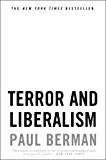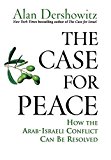Beard Privilege
Imagine that you have just been enwombed within the armed services of the United States. You’re ordered to take your place in the line for the barber’s chair, but explain that you prefer to retain your flowing locks and your luxuriant beard. The volume and tone with which the order is repeated strongly suggests that your commander thinks you may be out of your mind, but you patiently explain that you really like the hair and the beard, so, thank you anyway, but you really must insist on remaining unshorn.
Absurd, of course. The Army, etc., believes the reasons for insisting on the skinhead and babyface look are good ones: something about unit cohesion and discipline; safety, even. It doesn’t matter how attached you are to your beard or your mane. You are losing them. They will, of course, modify the close-shave regulation for medical reasons (and this was a hard-won victory), but that’s it. You really would have to be nuts to think that your personal preferences in this matter would be taken any more seriously than if you expressed a desire to go into battle wearing a French maid’s costume.
Unless, of course, your reluctance to be shaven is somehow connected with your belief in a supernatural being. Now, you’re making sense, and the Army, etc., will take you very seriously indeed.
No matter how fine and manly your beard, how fashionable your coiffure, how far back the hairy tradition goes in your family, how much a part of your culture it may be, how classy your Bearded Men’s Club is — if there’s no god involved, don’t bother.
This is what objective, rational people would recognize as a “religious privilege” — and what religious people think is right and proper. More: to point out that this is, in fact, another of the many examples of the special privileges granted to religion, and that we should, just perhaps, subject policies such as this to critical examination in the light of the secular political framework bequeathed us by the Founders (in the light, for that matter, of common sense and elemental fairness), attracts the outraged charge of religious persecution.
And we are surrounded by special privileges demanded by faith communities, from the large (exemption from all taxes at all levels, including property taxes on vast and valuable holdings by a politically meddlesome city-state) to the small (the sign next to the cashier window inside the DC courthouse, which informs me that checks will not be accepted, except from judges and members of the clergy).

The most recent example of a religiously exempt enlisted beard belongs to a Sikh man. For Sikhs, the beard, never to be shaved, the hair, never to be cut and to be enclosed in a turban, are part of the “articles of faith,” along with several objects to be carried on the person. The U.S. Armed Services can’t seem to make up its mind about this business. The Canadians, British, and perhaps others have long since accommodated themselves, and everyone’s happy.
Those services doubtlessly benefit from unencumbered access to Sikh warriors, whose culture has a deep respect for soldiering, and the fellows can join up knowing that they can observe their traditions without friction. But the Americans can’t seem to decide on a policy, forcing occasional court cases, sometimes granting “temporary accommodations,” sometimes not, more or less randomly. One thing is certain, though: aside from a certified skin condition, only a belief in a higher power will spare you the clippers.
In fact, I’m torn. I’m happy that Sikhs enjoy a theoretical chance to serve as soldiers without having to violate their traditions, and I’m happy that the government’s caprice may sometimes make this chance a reality. As religions go, you can do a lot worse than Sikhism. There is no sect within that faith that embraces terrorism, and their precepts and scriptures make this unlikely. You would be more likely to encounter a Sikh risking his life to protect the innocent than attempting to take innocent life. Nevertheless, there are regular hate crimes committed by culturally ignorant  Westerners against Sikhs whom they confuse with Muslims. This was particularly bad in the immediate aftermath of the Saudi-inspired attack on the U.S. on September 11, 2001, when Sikhs had to run for their lives and hide their turbans, but it continues, both in the U.S. and in Europe. (Of course, these vicious crimes are no more tolerable when committed against actual Muslims.) I would only prefer that, if accommodations of this kind are to be made, that they be made without the assumption that religious traditions and feelings are more worthy of deference and respect than traditions without a supernatural component. The ubiquity of special privileges extended to religions, combined with the interminable whining by the religious about their imagined “persecution,” is particularly galling. It is time that religion found the grace to learn its place in a civilized society.
Westerners against Sikhs whom they confuse with Muslims. This was particularly bad in the immediate aftermath of the Saudi-inspired attack on the U.S. on September 11, 2001, when Sikhs had to run for their lives and hide their turbans, but it continues, both in the U.S. and in Europe. (Of course, these vicious crimes are no more tolerable when committed against actual Muslims.) I would only prefer that, if accommodations of this kind are to be made, that they be made without the assumption that religious traditions and feelings are more worthy of deference and respect than traditions without a supernatural component. The ubiquity of special privileges extended to religions, combined with the interminable whining by the religious about their imagined “persecution,” is particularly galling. It is time that religion found the grace to learn its place in a civilized society.



